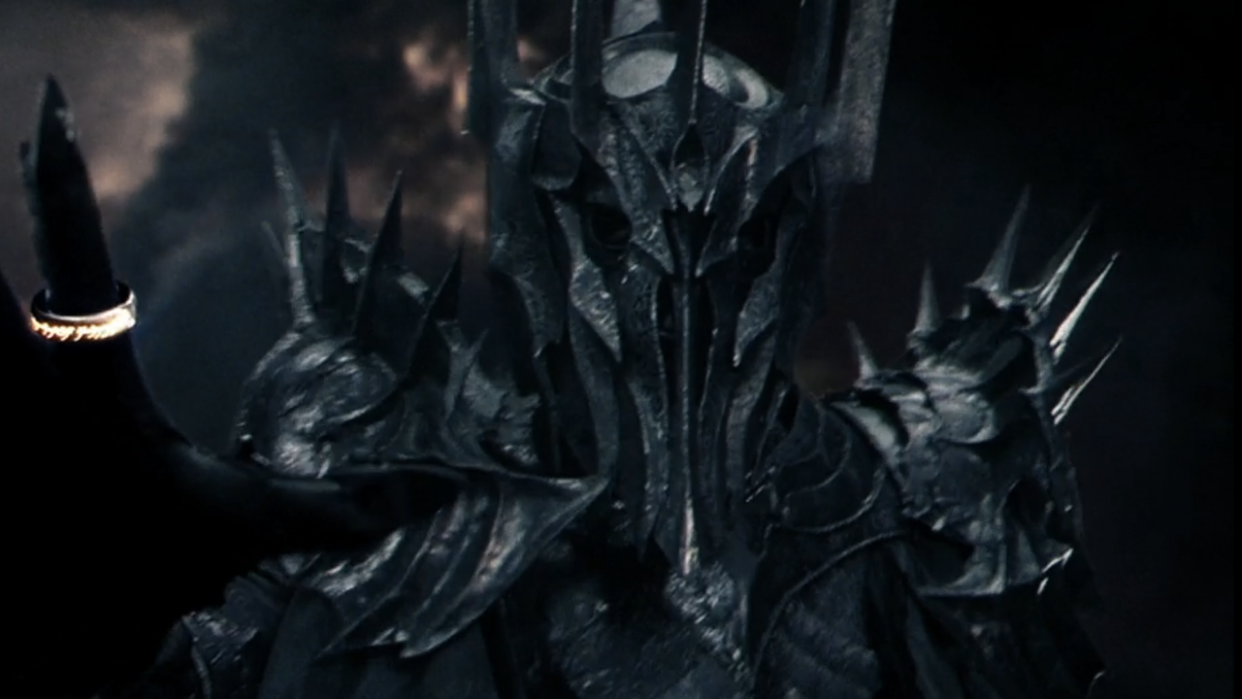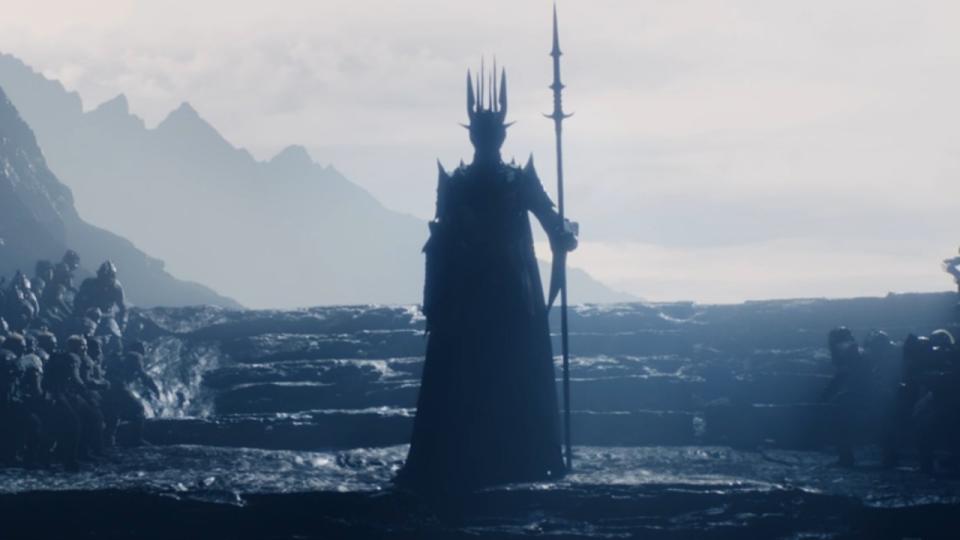Lord Of The Rings: The Rings Of Power Revealed Sauron's Identity Through The Score, And My Mind Is Blown

Warning: Spoilers for Season 1 of Lord of the Rings: The Rings of Power are in play. If you haven’t seen all eight episodes yet, you’ve been warned.
Season 1 of Lord of the Rings: The Rings of Power had a mystery that played out through all eight of its episodes on Prime Video: Who is Sauron? Speculation ran rampant as the show had several prime candidates, with the truth ultimately landing on one specific party. While the story of The Rings of Power set that reveal up in its own way, composer Bear McCreary’s score hinted at the answer earlier in the series in such a subtle way that my mind is still blown!

How Lord Of The Rings: The Rings Of Power’s Score Revealed Sauron’s Identity
At the end of the Lord of the Rings prequel's first season, it was revealed that Sauron had been hiding in plain sight as Halbrand (Charlie Vickers). By the time the finale, entitled “Alloyed,” weaved its tale, we learned that Sauron had been using Galadriel (Morfydd Clark) as the ensemble attempted to build the first three rings for the Eleven Kingdom. This unfortunate turn leads to our once and future villain returning to his home kingdom, which now goes by another name: Mordor!
In an interview with Screen Rant, Bear McCreary talked about his process of having two different themes for both Halbrand and Sauron. However, their differences were only strengthened by their similarities, as McCreary wrote a tune that could be structured with a specific symmetry. More specifically, here’s how the Battlestar Galactica music meister described his musical ruse:
It's interesting because I did give it away, if you are paying enough attention. Sauron's theme is Halbrand's theme backward. Same thing. And I'm so obvious about it, I just state it over and over. … I'm trying my best to trick you. I'm using harmony and context, going, 'No, no, no, no. He's a hero. Don't pay attention to the notes.'
Just in that explanation alone, Bear McCreary has pulled a trick similar to what John Williams did in Star Wars: Episode I - The Phantom Menace. Looking back at the galactic tale the composer altered “The Imperial March” to become the much gentler “Anakin’s Theme.” However, the mind-blowing nature of “Sauron” and “Halbrand” comes from a very different and intricate process that McCreary used to cover his tracks all the more effectively.

Bear McCreary’s Mind-Blowing Process In Writing Sauron And Halbrand’s Themes
Confessing to his deception in musical movement, the maestro behind The Lord of the Rings: The Rings of Power’s score laid out the amazing journey he took in order to craft these twin themes. Through an entry on Bear McCreary’s personal blog, the process is pretty thoroughly laid out; and it's pretty wild.
McCreary showed the musical notation of both themes, and in doing so provided a visual record of how both “Sauron” and “Halbrand” intersect as opposite numbers. Even going as far as mirroring the pattern of ascension and descension for each tune, the twins meet in the middle and proceed in opposite directions. Going the extra mile, the composer quantified the instrumentation for each Rings of Power cue in the following descriptions, covering his tracks even further:
The Sauron Theme conveys sinister malevolence and is most often heard in low male choir vocals singing in Tolkien’s invented language of Black Speech. … The Halbrand Theme conveys hesitant heroism, and is most often heard in rustic Nordic folk instruments, the nyckelharpa and Hardanger fiddle.
There’s so much more to Bear McCreary’s guide to how he both fooled and clued the audience into The Lord of the Rings: The Rings of Power’s big Season 1 reveal. Although even just looking at the pieces explained above, it’s a sonic feat that still catches me whenever I listen to either song.
It also makes sense that "Sauron" and "Halbrand's" relationship would be a bit more complex than the Phantom Menace example I mentioned above. John Williams had the luxury of audiences already knowing the twist, and being able to enjoy the musical reinterpretation at face value. McCreary, on the other hand, had to watch his steps, laying just enough breadcrumbs for people to ask questions, but not enough to give away the surprise.
Reading the God of War composer's description of both themes meeting as one “ring” of music to symbolize Sauron still has me flabbergasted when it comes to how it’s all presented. And for those who want to wander through the eight-episode fantasy opera themselves, a Prime Video subscription is all that's needed to currently enjoy the spectacle.
While there are still some pretty big questions surrounding The Rings of Power Season 2, one more should be added to that list: how the hell does Maestro McCreary top this “ring” of themes in his next season-long opus? What we do know about The Lord of the Rings: The Rings of Power Season 2 is that the series has been filming, with no set release date in sight.
So we’ll have to keep pondering these riddles, in the dark or otherwise, as the wait for the next batch of stories continues to march on. For now, you can track down your next obsession through the 2023 TV schedule, the one lineup to rule them all.
